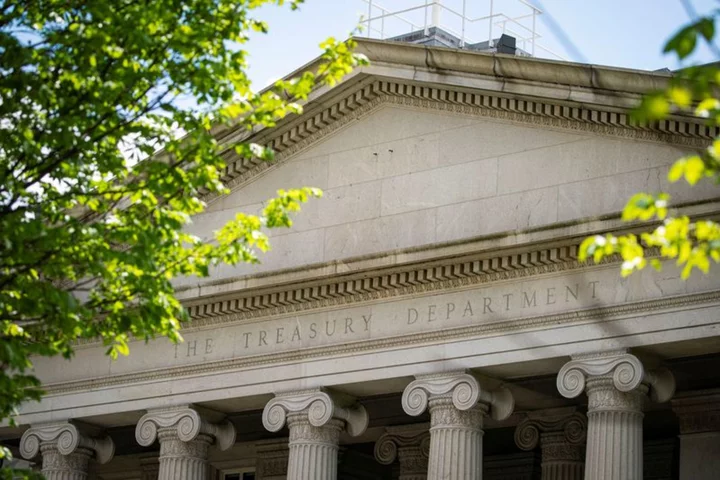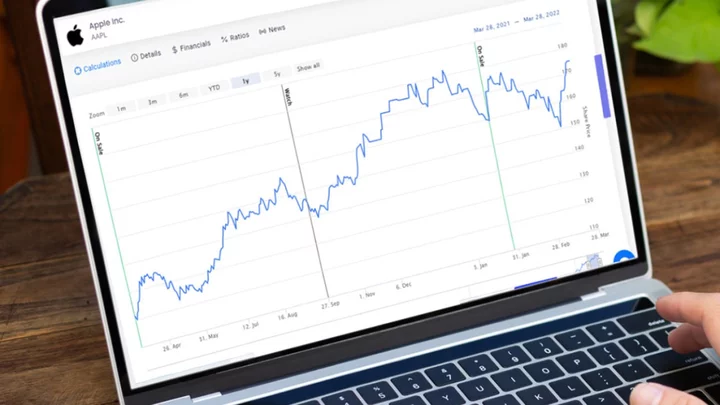By David Lawder
WASHINGTON The U.S. government posted a rare August surplus of $89 billion due to the reversal of $319 billion in student loan forgiveness costs after the Supreme Court struck down the Biden administration program in June, the Treasury Department said on Wednesday.
The August surplus - the first for that month since 1955 - compares to a year-earlier deficit of $220 billion. Receipts last month totaled $283 billion, down 7% or $21 billion from a year earlier, while outlays came to $194 billion after the student loan reversal, down 63% or $329 billion.
With one month to go before the fiscal 2023 year ends on Sept. 30, the year-to-date deficit totaled $1.524 trillion, a 61% increase over a $946 billion budget gap for the same period of fiscal 2022.
The 11-month deficit was almost as much as the White House's latest forecast of a $1.543 trillion deficit for the full fiscal year, after two years of falling deficits as COVID-19 pandemic spending faded.
Fiscal year-to-date receipts totaled $3.972 trillion, down 10% or $434 billion from a year earlier, primarily due to lower non-withheld individual income tax receipts, higher tax refunds as the Internal Revenue Service churned through a huge backlog of unprocessed paper tax returns, and far lower Federal Reserve earnings due to higher interest rates.
Year-to-date outlays totaled $5.496 trillion, up 3% or $142 billion, partly reflecting the student loan reversal. The Treasury's net interest costs hit a record $808 billion, up 19% or $130 billion from a year earlier.
(Reporting by David Lawder; Editing by Paul Simao)









